Which Director Understood Batman?
Batman is one of the best characters in fiction. Not just comic books. Fiction; a tragic figure with identity issues, post-traumatic stress, perhaps sociopathy. Batman’s popularity has outlasted most of the heroes that debuted in his day because you can take him, drop him on an alien planet and he’d still be Batman. At first, he was a pulp hero; a crazy masked guy with a gun. This was wisely retconned, making Batman more layered, the reason he’s one of the most popular comic characters ever. But what makes Batman…Batman? The costume, Bruce Wayne’s handsome billionaire playboy persona, martial arts expertise; a man in peak physical condition who’s also a genius. He fights extravagant psychotic villains. He has complicated relationships with his butler/father figure, Alfred, and his surrogate Bat Family. He has a strict moral code, refusing to murder even the most violent criminals, and finally his compassion, the core of Batman. I’ve obsessed over him my whole life. I’m not exaggerating. It’s bad.
I wish I was Batman.
Anyway, let’s examine Batman's role in cinema history. So far, there have been four filmmakers who have interpreted the character. Let’s examine who most understood the source material starting at what the general consensus considers to be the most successful.
Christopher Nolan
Warner Bros. hired Christopher Nolan eight years after audiences gave Batman & Robin the cold shoulder. (Get it?) Fresh off the success of his latest film, the underrated Insomnia, starring Al Pacino and Robin Williams, Nolan’s approach was the antithesis to Shumacher’s, focusing on Batman’s origins, his motivations, and grounding the story in reality; where Batman battles corruption and the mafia.
Bruce is lost and angry after his parents’ death; expelled from Princeton, planning to murder his parents’ murderer, Joe Chill, who’s testifying against crime boss, Carmine Falcone. After Falcone has Chill murdered and his childhood friend, Rachel Dawes, voices her rage and disappointment at his plan, he remembers his parents being shot to death and tosses the gun into the river, refusing to use the same weapon that murdered his parents; a powerful scene visually executed with editing and Christian Bale’s magnificent performance rather than expository dialogue, a rarity for Nolan.
Falcone tells Bruce he fears criminals because he does not understand them. Motivating Bruce to flee and train around the world, returning to Gotham seven years later, now an expert in the criminal mindset and martial arts, using fear to fight crime. His phobia of bats becomes the most important tool in his crusade. The villain, Scarecrow, physically represents Bruce overcoming fear and using it as a motivation rather than something that haunts him.
This dude is the lazy supervillain ever. He grabbed a potato sack, cut two holes in it and called it a day.
In terms of understanding Batman, this is Christopher Nolan’s most successful film. Having said that, there is something Nolan gets wrong; Batman kills, albeit indirectly. He doesn’t save Ra’s Al Ghul, leaving him to die; something Batman would never do. Christian Bale shows the breadth of his talent and physical commitment, gaining near 100 pounds. Seriously, my man’s is BEEFY; fully embodying Bruce as the angry, young, Bruce as the man on a mission, as his public facade, the shallow billionaire playboy, and of course, Batman, the embodiment of fear and obsession; a force of nature. The film received positive reviews, declared a return to form for the character, and influenced countless gritty reboots.
The Dark Knight is a film that defined the modern blockbuster. The film showed that superhero films can be art, even being inducted into the Library of Congress. A film with a villain that took pop culture by storm not seen since Hannibal Lecter. A film responsible for a slew of imitations and the tired trope of the villain orchestrating his capture by the protagonist in order to execute his real plan. A film embraced by film bros the way Fight Club was a decade earlier.
‘Yo, bro. I relate to The Joker cause he said he got no plan and I got no plan so I’m basically The Joker.”
Batman battles The Joker, his arch-nemesis; a compelling fictional rivalry comparable to God and The Devil. Neo and Smith. Bugs Bunny and Elmer Fudd. Their mutual obsession forms their bond similar to Vincent Hanna and Neil MacCauley from Heat, played by Pacino and De Niro respectively. You can make the argument this is a loose remake of Heat. The Joker says, “You and I are destined to do this forever.” A line referring to their relationship in the film and their cultural history. Batman’s existence attracts The Joker, like a monster awakened from a slumber, a theme borrowed from the source material.
This isn’t The Joker who kills people with laughing gas or turns Gotham River into jelly. He’s a terrorist, a villain interpreted for a post-9/11 era, with causality and Batman’s War on Crime being a metaphor for the escalating War on Terror. Something critics felt elevated the film.
Bane’s n95 mask is fire.
The Dark Knight Rises, the final chapter of the trilogy was released. I’ve written about trilogies and their critical reception here so I won’t go into that. While the film had positive reviews, people are split between its ranking in the trilogy. Like other trilogies, Bruce confronts his past. He has been a recluse in the eight years since The Joker murdered Rachel Dawes. It’s also been eight years since the last appearance of Batman. He dons the cape once again when Bane, the new leader of the League of Shadows, aims to finish their mission and destroy Gotham, turning the population against Gotham’s rich, causing an uprising. Bane and Batman's face-off results in him breaking Batman’s back; an infamous moment in comics. Tom Hardy’s physicality is frightening. It’s the first time Batman is bested in hand-to-hand combat, making Bane an equally physical and psychological threat.
While the film could have benefitted from a few more drafts, it’s still riveting, especially now that Bane’s fascism is a topic of discussion in today’s climate. The ambiguous ending is more confusing than ambiguous but Nolan’s films are the most accomplished blockbusters of the modern era. But do they understand Batman? Well…they started to but became less complex as the series progressed. In both sequels, Bruce falls in love and wants to stop the bad guy. That’s it. They are Nolan films. Not Batman films. The distinction is important.
Tim Burton
Frank Miller’s comics, Batman: Year One and The Dark Knight Returns and Alan Moore’s The Killing Joke legitimized the comic book medium. After Burton’s sophomore effort, Beetlejuice was a success he was hired to direct Batman. Burton’s films are visual feats. He wasn’t a fan of comics but he was particularly taken with visuals of the aforementioned comics, using them as guides for the production, also taking cues from Art Deco, German Expressionism, and Film Noir. Burton’s fusion of 1940s fashion with modern technology is one of the biggest impacts on the Batman franchise across all media.
Every leading man from Mel Gibson to Bill Murray (What the fuck would that movie be?) was considered for Bruce Wayne/Batman. Burton cast Michael Keaton, the star of Beetlejuice. Fanboys went fucking nuts, something that predicted today’s toxic fandom. Batman had gone through a renaissance in the comics. The fans feared Batman was reverting to his campy Adam West days. The skepticism was not unfounded. In the source material, Bruce Wayne is a traditionally handsome physically fit beefy boy. Michael Keaton’s Bruce Wayne does not have old school leading man looks, a very superficial criticism because after all, beauty is subjective. HOWEVER, he does have the physique and fashion sense of an English professor. It’s hard to believe Keaton’s Batman can lift men with one hand and box people to sleep when he looks like the extent of his regimen is a light jog.
Seriously, if he catches these hands, he ain’t getting up.
Keaton’s Bruce doesn’t know how to have normal conversations with anyone, especially women. When he and Vicky Vale dine at his mansion, they sit thirty feet away from each other eating in silence. He’s the kooky guy in the mansion, who everyone should suspect is Batman. His performance was praised. Keaton does the impossible job of fleshing out a paper-thin character on the page. He’s better in the sequel; showing Bruce’s intelligence as a businessman and his romance with Selina Kyle is far more credible than his romance with Vicky Vale.
But these films aren’t about Batman. They’re about the villains. Jack Nicholson got top billing for playing The Joker. It’s easy to see why. He probably has more screentime than Michael Keaton. It’s worse in the sequel, Batman Returns. The film spends more time with Penguin (Danny Devito) and Catwoman. Michael Keaton doesn’t show up until the thirty-minute mark. Burton relates more to the villains, the outcasts, a recurring theme in his filmography.
A photo of 168th Street station in 2022.
I’d be more scared to fight her than Michael Keaton.
Even though the film was released in 1989, the film still influences the film industry today. The film sold $750 million dollars worth of merchandise and made $400 million dollars. This was 1989! That shit is wild. Prince originally contracted to do a song, released a whole fucking album, something that predates Kendrick Lamar’s Black Panther album. Prince’s album is brilliant. It fucking slaps. Prince fans, please don’t hate it cause it’s not Purple Rain. It’s got Partyman. Partyman! Anyway, Keaton’s performance influenced countless iterations. Every actor uses two voices for Bruce Wayne and Batman. The films are a brilliant exercise in style but do they understand Batman? Only visually. Bruce Wayne doesn’t do anything. In fact, the writer's shoehorn The Joker as his parent’s murderer halfway to give him some motivation. In both films, Bruce Wayne has a love interest. He doesn’t know how to tell her he’s Batman. She finds out and he stops the bad guy.
Zack Snyder
After Zack Snyder directed his moody Superman film, Man of Steel, Batman was brought into the sequel in the awkwardly titled Batman v. Superman: Dawn of Justice, starting the DCEU. Everyone was excited because it was going to be the first live-action film to feature Superman and Batman. They were gonna scrap. It was gonna be lit. It wasn’t.
Ben Affleck starred as Batman, causing outrage because of Affleck’s terrible Daredevil adaptation in 2003. He resembles the Bruce Wayne in the comics down to the pronounced superhero chin. His performance and the opening are the best parts of the movie. We see Bruce deciding Superman is fucking menace after witnessing Superman’s destructive fight in the Man of Steel climax.
He’s got a point.
The film uses 9/11 imagery in the opening scene to use Batman’s crusade as a metaphor for The War on Terror. It’s boring to have the same conversation.
Batman is the film’s antagonist. Robin was murdered by The Joker before the film’s events; a plotline borrowed from The Dark Knight Returns. He’s so blinded by his crusade, he’s become a psychopath; murdering and branding criminals with the Bat log so they can get shivved in prison. I don’t know. It doesn’t make sense to me either.
Seriously, why is he branding people like cattle?
In the climax, he and Superman fight for…some reason. I still don’t understand why. it resembles the Superman and Batman showdown in The Dark Knight Returns which ends because they both have moms named Martha so they team up with Wonder Woman to fight a big CG monster. Superman dies and Batman’s like, “Damn. I was wrong.” No, you weren’t, Batman.” Superman was a menace.
A fucking menace.
The film received negative reviews, causing Warner Bros. to pivot and try to make the next Justice League film lighter. I’m skipping nerdy fuck boy, Joss Whedon’s soulless ghoul of a movie. You can see Ben Affleck checking his watch, wanting desperately to run away.
Fortunately, Zack Snyder got to finish his cut of Justice League after fans petitioned to see it. His cut is his magnum opus; a mythical epic exploring Batman’s guilt over Superman’s death that motivates him to form the Super Friends. In Snyder’s cut, Affleck's portrayal of Batman’s redemption gives the film emotional weight. Affleck turned down the chance to write, direct, and star in his own Batman film, due to personal issues and the baggage of playing the character, and quit the series.
Do these movies understand Batman? No. Affleck is great. Batman’s costume and gadgets are faithful to the source material but that’s where it ends because Batman doesn’t kill. In The Dark Knight Returns, when The Joker murders Robin, he retires. He doesn’t become a murderer. Snyder and Co. say these movies are for true “comic book” fans. But they mean the fans that think Batman should kill because it’s more realistic. They’re superhero films, an exploration of the complexities of heroism. This is not a different interpretation of Batman. This is a different character entirely.
This scene makes me so hype I wanna throw hands.
Joel Schumacher
So, I have to admit something: I wanted to end at Joel Schumacher. Not because I think he’s the worst Batman director but because he understood Batman more than any of the directors on this list. Please put the gun down. I have a family. I’m not trying to be spicy for the sake of being spicy. This is a monograph and I will provide references.
Batman Returns was considered too dark for children. In fact, McDonald’s pulled their Happy Meal promotion for this reason. When the film made $150 million less than the first one, Tim Burton was replaced. Warner hired Joel Schumacher, director of the masterpiece, The Lost Boys. At first, Schumacher wanted to direct an adaptation of Batman: Year One, something that excited Michael Keaton. However, Warner demanded this be a sequel. Keaton turned down $15 million after reading the script. Schumacher cast Val Kilmer as Batman and Chris O'Donnell as Robin in his first appearance in the series. Schumacher moved away from Burton’s grim gothic noir aesthetic and went for a lighter approach, covering Gotham in colorful neon.
A SHIT ton of neon.
The film is a tribute to the campy Adam West show. Jim Carrey’s over-the-top performance as The Riddler has a lot of shades of Frank Gorshin’s take on the character in the show. Tommy Lee Jones’s Two-Face and Carrey’s Riddler are not the intriguing characters of Nolan’s trilogy. They are cartoonish bad guys, jumping and cackling in every scene.
Two-Face got the drip.
Schumacher’s response was “Batman is a comic book…we made a living comic book.” This approach has been a point of contention by Batman fans, feeling the series was regressing. This, they were willing to deal with but what fans could deal with; what they could not forgive was Shumacher’s decision to put nipples on the Batsuit, feeling they made Batman into a joke. Superhero comics have constantly been compared to Greek Mythology. Schumacher made this decision because he wanted the Batsuit to resemble the perfection of Greek statues. This decision makes the Greek Mythologycomparisons text instead of subtext. This is still considered a low point for the Batman character.
I actually find the suit really flattering, who’s his tailor?
While this film has a lot of camp, it also explores the more serious aspects of Batman. This is the first film in the series to explore his psychology. Schumacher gets to include some aspects of Batman: Year One by flashing back to scenes from Bruce’s childhood. It is the first film that explores Bruce’s guilt over the death of his parents. He’s suffering from repressed memories, questioning his decision to stay Batman, feeling guilty he wasn’t able to stop Two-Face from murdering The Flying Graysons.
The Riddler’s Edward Nygma and Dick Grayson force Bruce to confront his identity crisis. Edward Nygma obsesses over Bruce Wayne, even dressing like him when he earns enough wealth; a distorted mirror of Bruce, an evil rich man who dresses in a costume at night. It symbolizes Bruce’s battle with his duality. Bruce takes Dick Grayson into his mansion after his family is murdered. Dick is blinded by rage, asking Bruce to help him kill Two-Face. When Dick puts himself in harm’s way to save Batman, Bruce resigns. This is the only film to deal with Batman’s psychology; his struggle with repressed memories and PTSD and the struggle of having to be a father figure to Dick Grayson. Val Kilmer gives an understated performance, a welcome balance to the sugary cereal of the rest of the movie but also one that shows the hints of pain Bruce is trying to repress. It’s not until Bruce confronts these demons he decides that he will be Batman…
Batman Forever made a shit ton of money and sold a shit ton of toys (I had the Batmobile) and gave us Seal’s Kiss from a Rose. It’s a fucking banger.
Batman & Robin went into production immediately. Warner Bros. didn’t give a shit if it was good. They just meddled with Schumacher so they can use the film to sell toys. George Clooney replaced Val Kilmer. It’s a missed opportunity because holy shit, that’s perfect casting. While Schumacher paid tribute to the Adam West show in Batman Forever, this is the Adam West show. It’s got a Batphone, Batman has a credit card that’s good till forever, Arnold Schwarzenegger yelling ice puns as Mr. Freeze, and Batman and Robin playing hockey and fighting goons.
“Cool party.”
It’s a wild ass movie. This is considered one of the worst movies of all time. For Batman fans, it’s because Schumacher, an openly gay man, made Batman gay. The close-up of the nipples on the Batsuit and Batman’s butt angered many fans. The interpretation isn’t wrong but that makes the movie ten times better because if you take the script at face value, it’s trash, but if you watch with the subtext that Poison Ivy is threatening the love of two men, it’s a brilliant pop-art film.
A romance spanning decades
Uma Thurman as Poison Ivy is part Gloria Swanson, part Divine, and part Mae West.
“I’ll bring everything you see here plus everything you don’t.”
She should have won an Oscar cause she knew exactly what kind of movie she was in and committed.
Gay subtext has always been in Batman since the 1950s all the way to the Adam West show. Burt Ward who played Robin said you could interpret them as lovers. Grant Morrison, one of the most famous Batman comic writers said, “Obviously, he’s intended to be heterosexual but the whole concept is utterly gay.” George Clooney said his take on Batman is a gay man. So, none of this is new. What Schumacher does is take this aspect of Batman, brings it upfront, and celebrates it. His films were inspired by Adam West, Frank Miller, and Dick Sprang. A man who references all those varied takes on Batman knows what the fuck he’s talking about.
This shouldn’t be a negative criticism of the films and Schumacher felt compelled to apologize, which is unfortunate because as a director, he gave us every shade of Batman. There is a rumor of a director’s cut of Batman Forever floating around somewhere. Schumacher's original version deserves to be seen after all the criticism. Schumacher died in 2020 so he won’t be around to see that release if it ever happens but I hope it does.
Camp is part of Batman’s history. It’s just as valid as Nolan or Burton’s brooding Dark Knight. The animated show, Batman: Brave and the Bold featured an episode where Bat-Mite breaks the fourth wall and says: “Batman’s rich history allows him to be interpreted in a multitude of ways. To be sure, this is a lighter incarnation, but it’s certainly no less valid and true to the character’s roots than the tortured avenger crying out for mommy and daddy.”
Shoutout to Joel Schumacher, the director who most understood Batman.

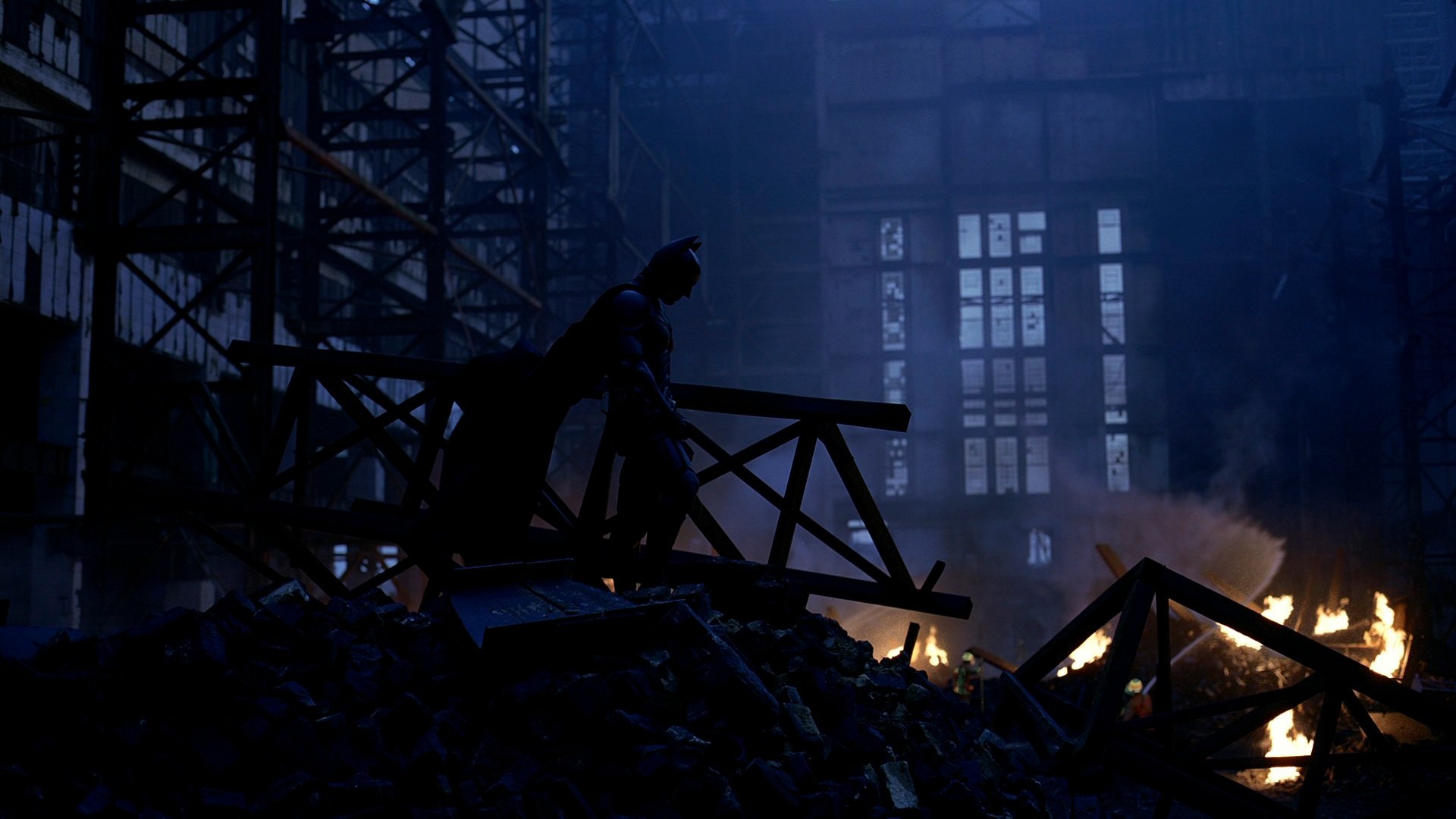
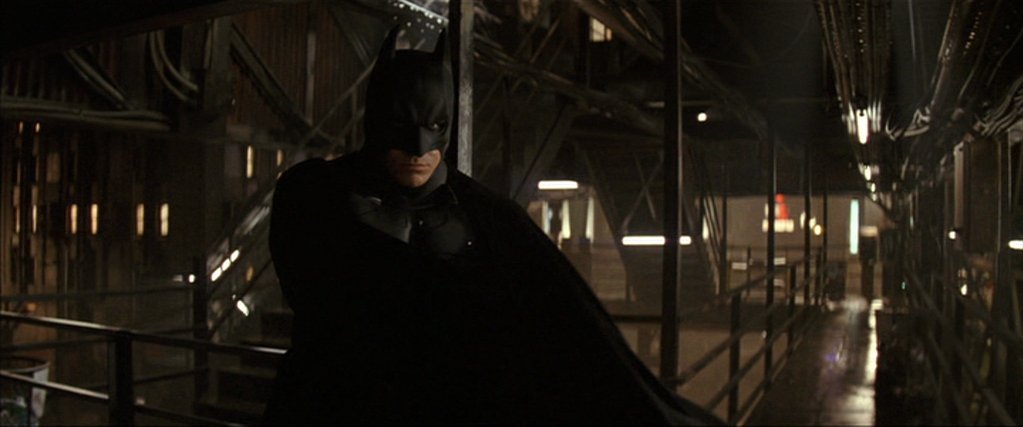



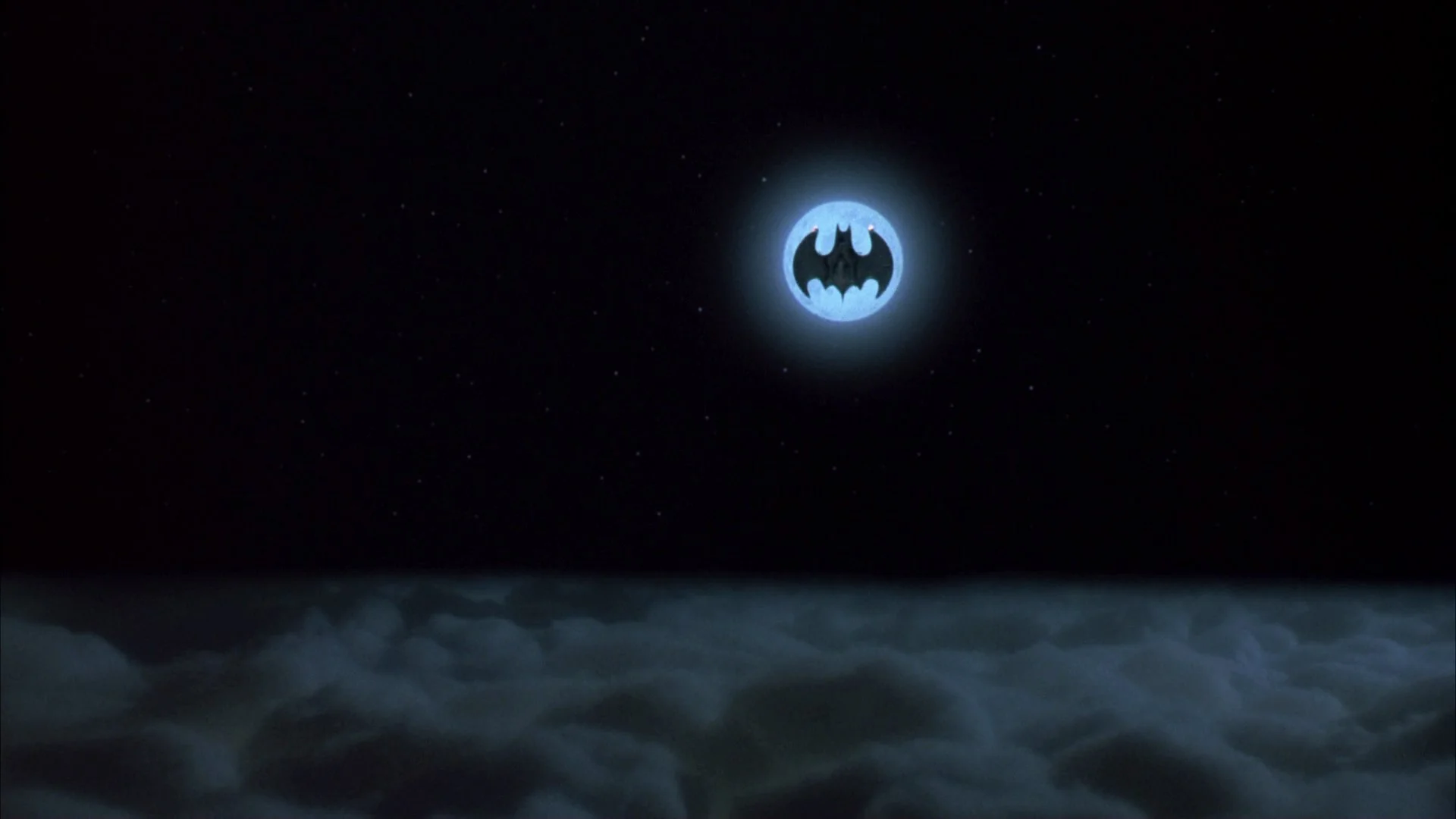


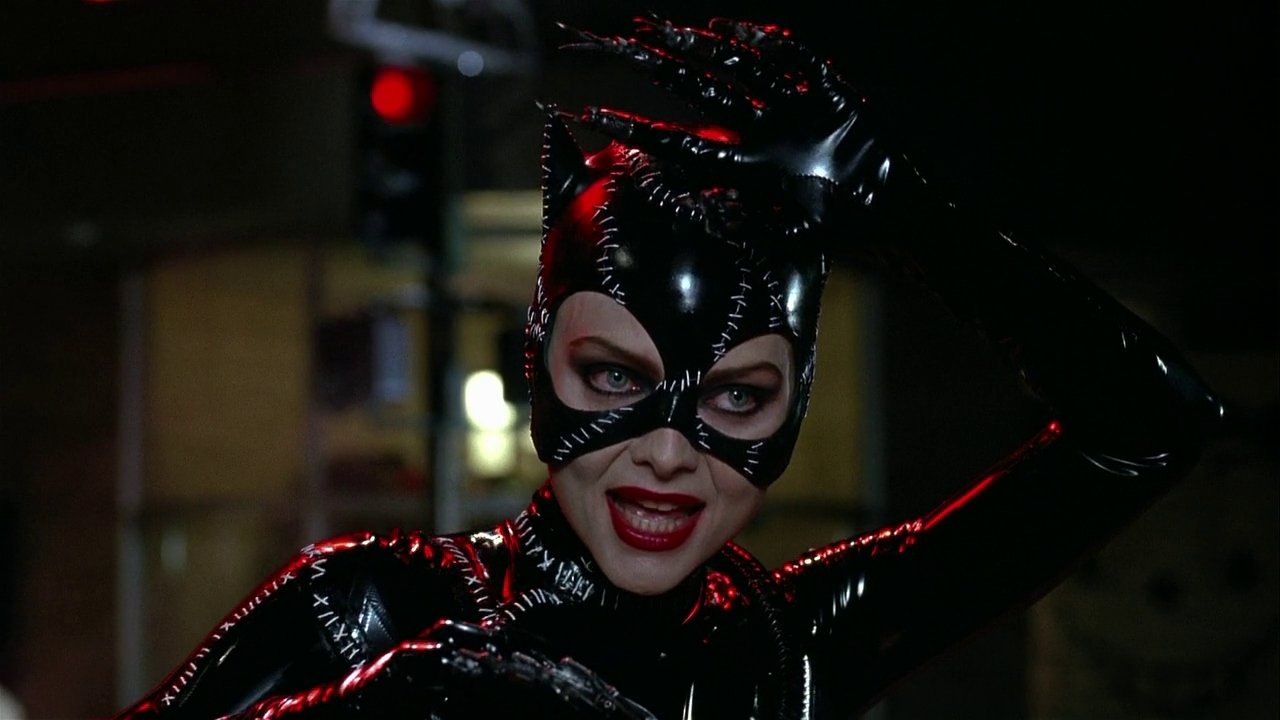

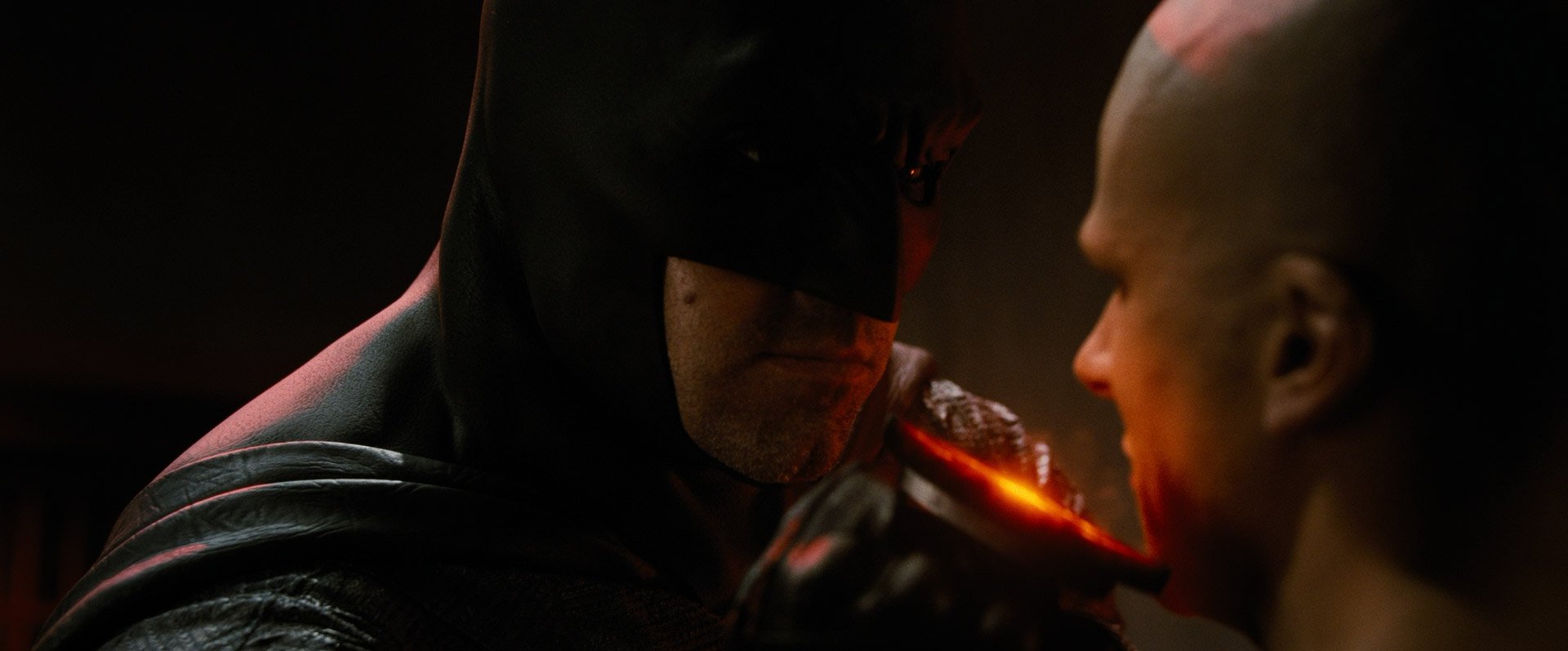
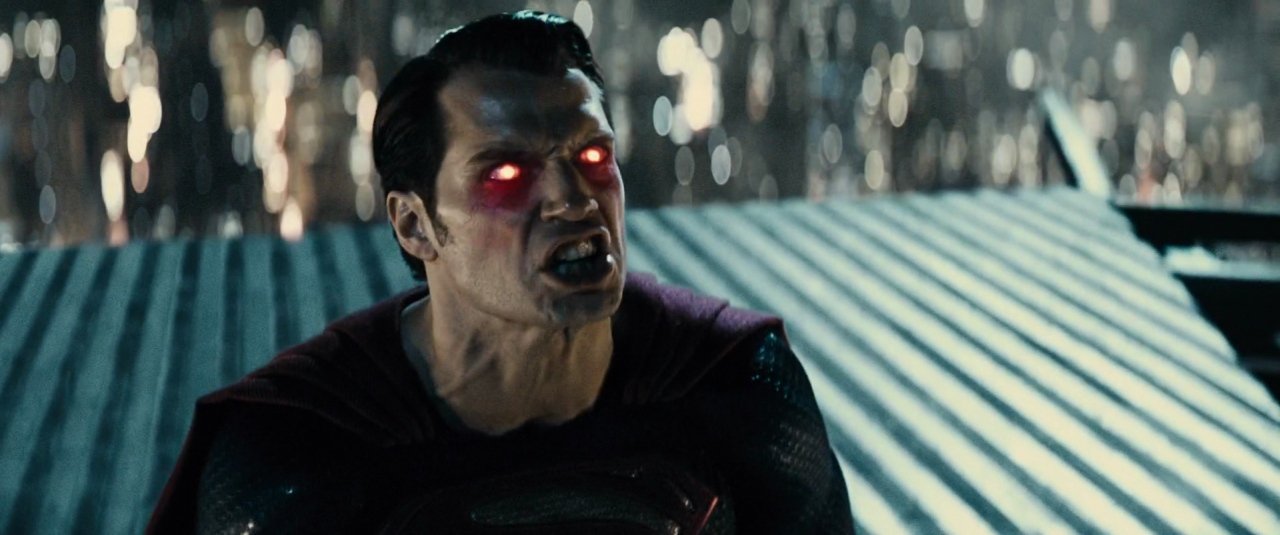
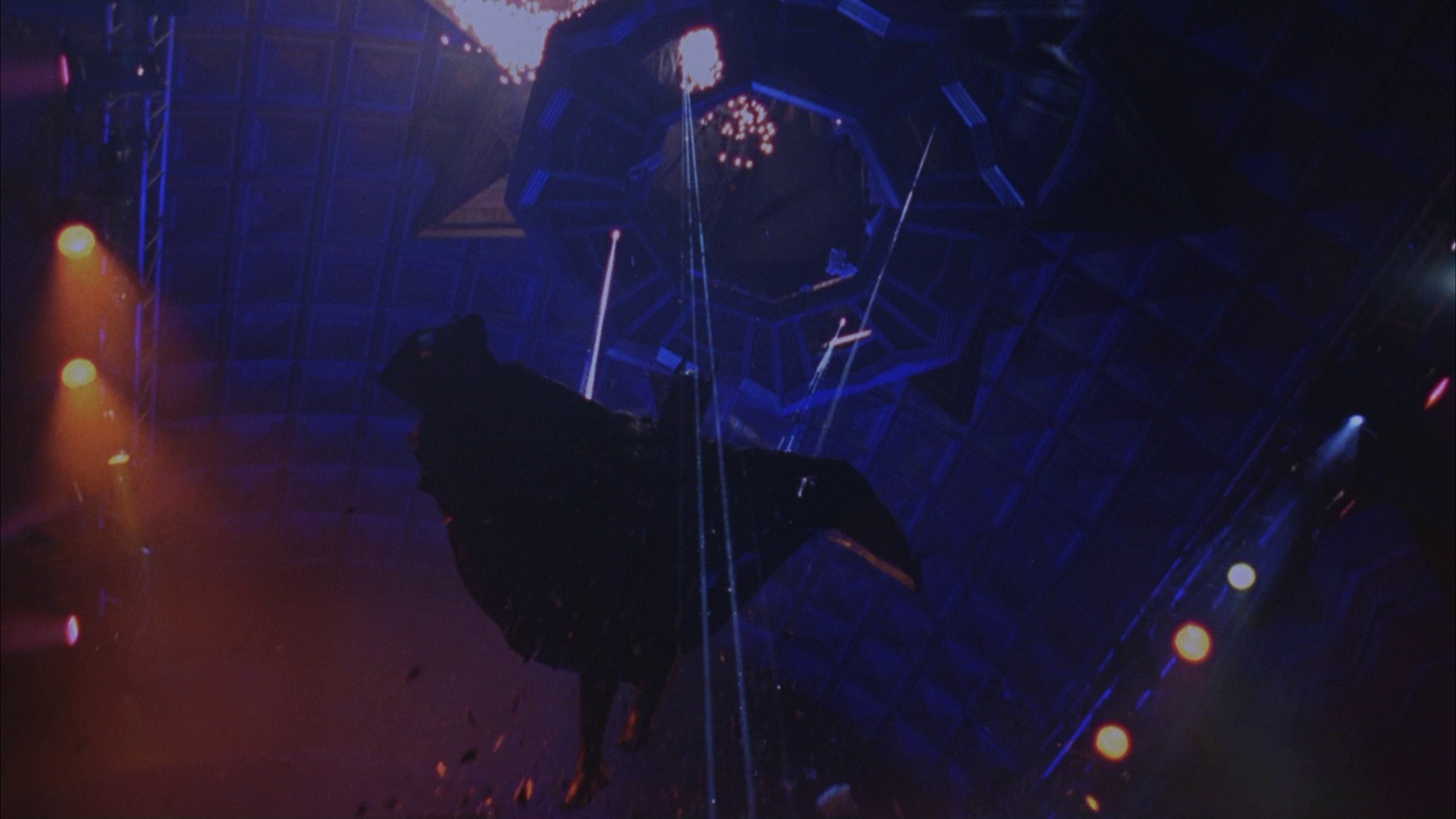



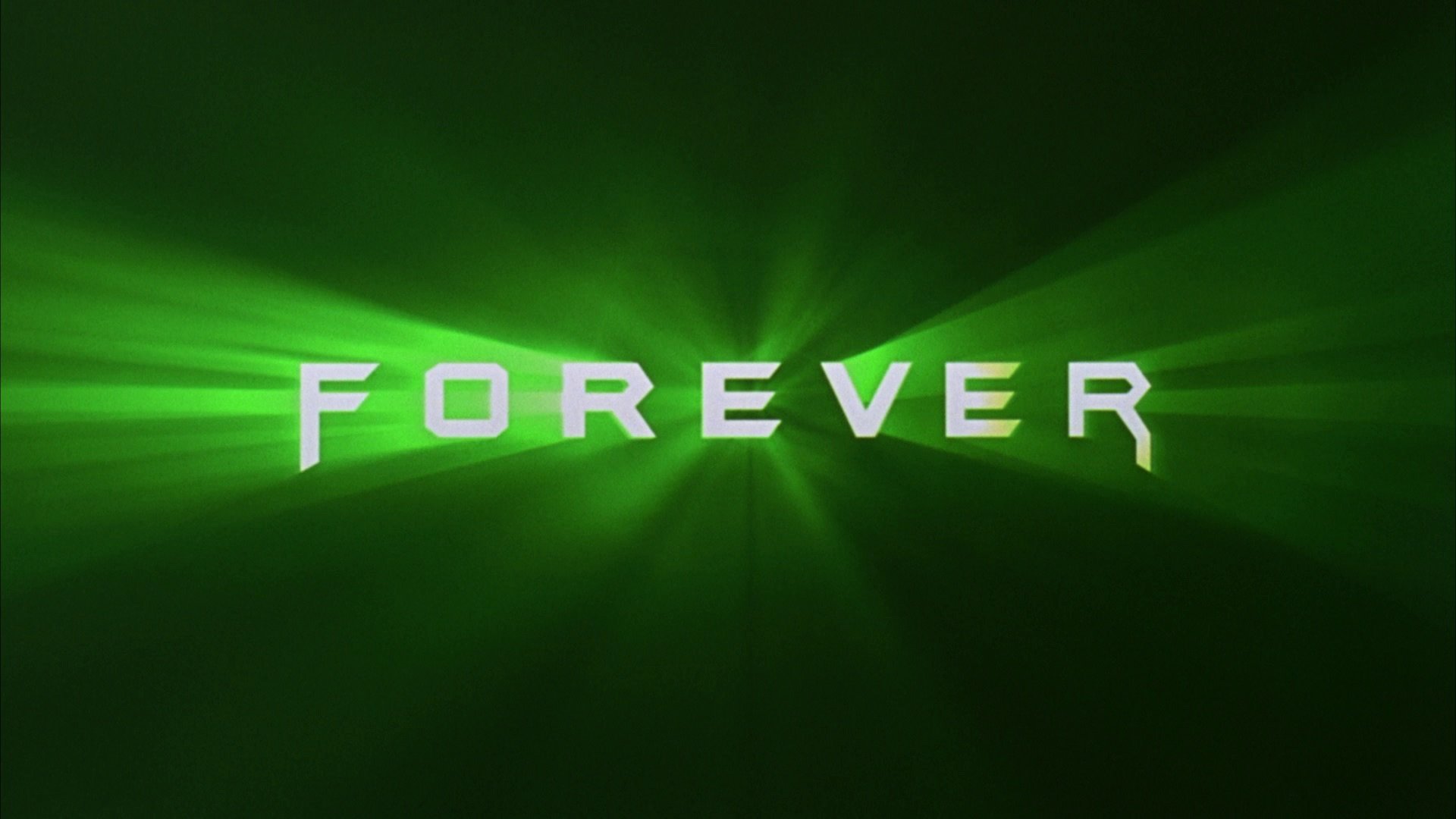
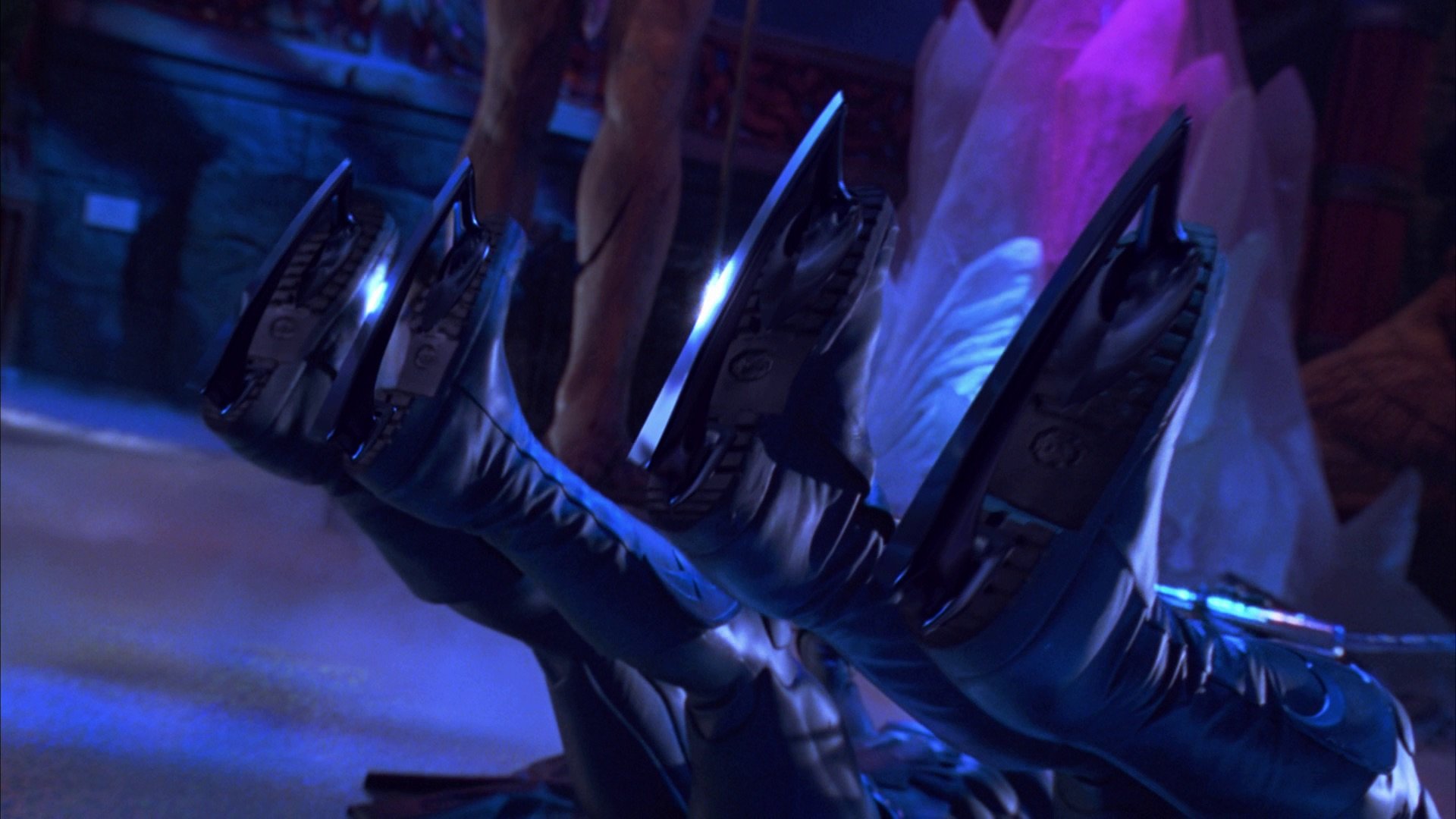

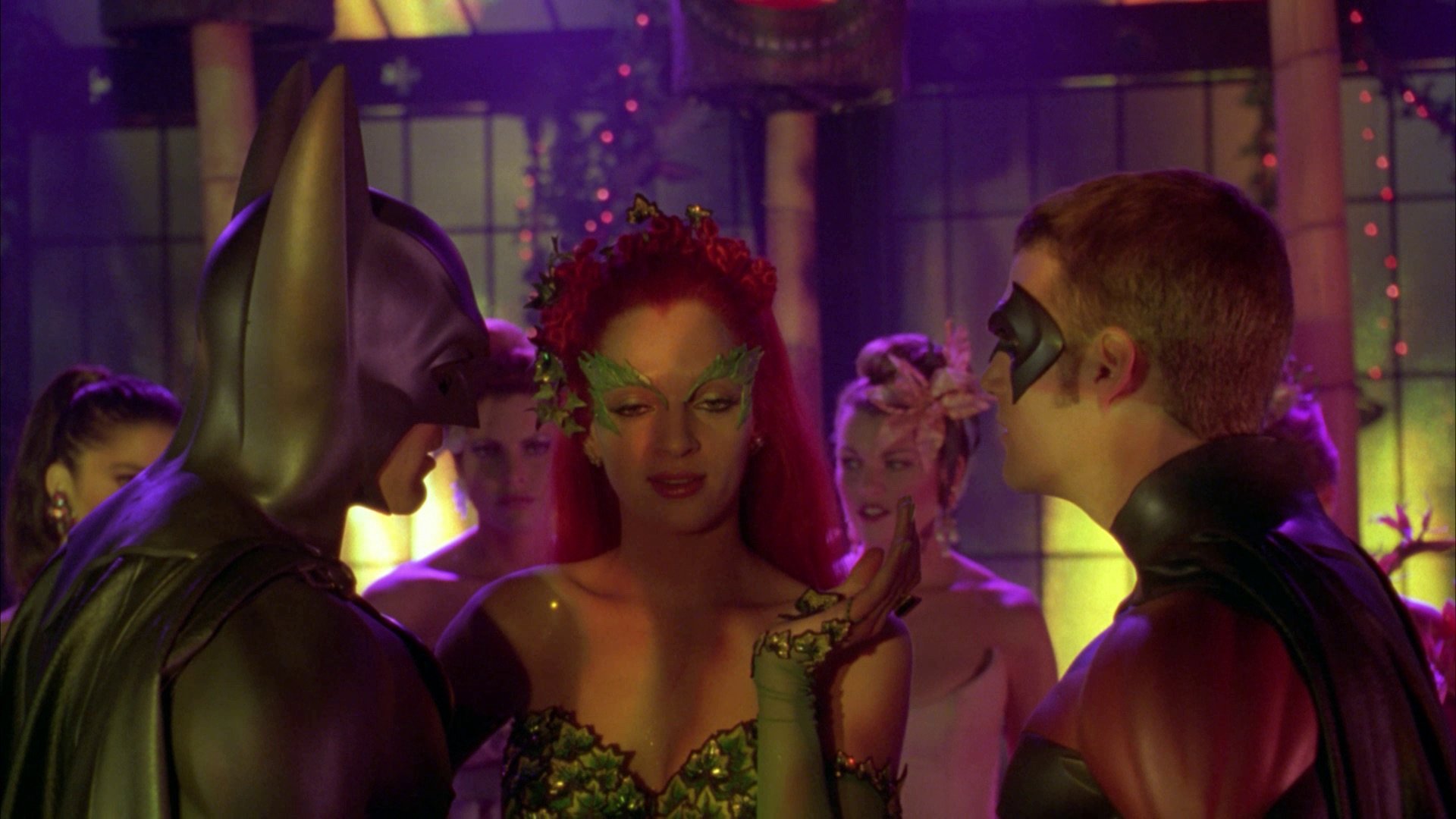


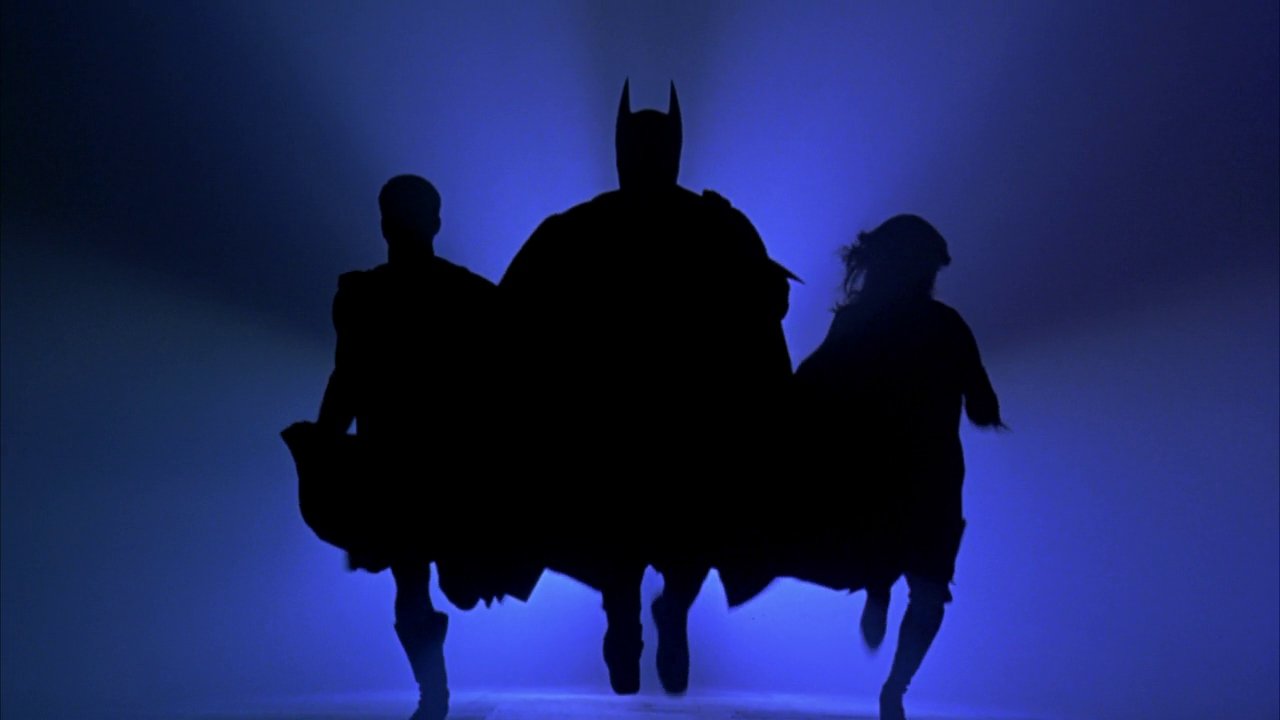


George has escaped from Arkham Asylum. He’s dressed in his batsuit in the dark. He’s on his batmicrophone talking about the greatest batmovie.
Will George ever get a good night’s sleep? Will he ever fulfill his dream and become Batman? Will he ever become a stable human being? Stay tuned.